“We need to set these things in a global context…the number of such accusations and attacks are increasing [and] have been exponentially for the last 25 years.”
NEW YORK — Despite publicity to blasphemy-related murders in Paris and other parts of Europe, deaths of non-Islamic Westerners are a small fraction of the increasing number of blasphemy killings, beatings and persecutions committed by Muslims according to an expert who spoke at The King’s College in New York City recently.
“You are not Charlie! You were not shot at, you were not killed,” said Dr. Paul Marshall, during his Feb. 20 speech at the liberal arts college located in the financial district of Manhattan. “We need to set these things in a global context…the number of such accusations and attacks are increasing [and] have been exponentially for the last 25 years.”
Dr. Marshall, a senior fellow at the Hudson Institute’s Center for Religious Freedom, spoke on “The Aftermath of Charlie Hebdo: Blasphemy, Freedom of Religion and The Press” at the college to bring light to the unsung majority: the millions living under abhorrent blasphemy laws of US allied countries in the Middle East and Asia. Those attacked are often Muslim and non-Muslim alike according to Dr. Marshall, who surveyed 26 Muslim majority countries and 14 Western countries for his book “Silenced: How Apostasy & Blasphemy Codes Are Choking Freedom Worldwide.”
The accusations or charges are usually vague, even when there are written laws. To demonstrate the breadth of the grounds for prosecution, Dr. Marshall provided “a very partial list” which included: apostasy, insulting a “heavenly” religion, creating confusion between or among Muslims, imitating Christians, harboring destructive thoughts or feelings, being friends with God’s enemies, fighting against God, dissenting from religious dogma, and propagation spiritual liberalism.
Politics often plays a role in shaping the charges. In September 2005, the Danish newspaper Jyllands-Posten published a children’s picture book, as a part of a series about famous religious leaders, on the life of Muhammad. “Nothing happened in the weeks following,” Dr. Marshall said. “A few Danish Muslims peacefully protested, saying that they shouldn’t do that.” But in February 2006 a small group of radical Danish imams took their own manipulated versions of the cartoons to several Middle Eastern countries. That offensive dossier sparked protests, boycotts, and riots, leading to the killings of dozens of people in Nigeria and Pakistan.
Yet while political influence is necessary to motivate attacks, the greatest danger is not from governments but from mobs, vigilantes, and terrorists. In Pakistan, which holds the most stringent blasphemy codes in the world, extra-legal violence is the most lethal: tens of thousands accused and thousands more imprisoned Dr. Marshall said. At least two of the death penalty laws are blasphemy charges. Pakistani prisons treat a blasphemer as equal to – if not worse than – a rapist, with many murdered while incarcerated. Three Christians, after a judge acquitted them of blasphemy accusations, were gunned down as they walked out of the Pakistani court he said.
Dr. Marshall also outlined the four major categories of victims: post-Islamic believers (Baha’is and Ahmadis), apostates (converts and unbelievers), Muslims of the “wrong” type (opposing beliefs: Sunni, Shia, Sufi, etc.), and political reformers or dissidents. Afghan Ali Mohaqeq Nasab was the editor of a magazine called “Women’s Rights.” In 2005, Ali published two articles: one titled “Is it really the case that Islam requires us to kill those who believe are apostates” and another titled “Is it really the case that Islam requires us to stone adulterers?” The government discovered this and imprisoned him. Those working for and supporting him realized that you cannot do anything about restrictions of the government. Dr. Marshall said: “[in these countries] you cannot do anything about the issues of Islam because you cannot talk about it. The areas where reforms are needed are pushed away … [and] dealing with many other problems of modern Islamic extremism becomes impossible.”
Mohsen Kadivar, Mimount Bousakla, Shahin Najafi, Hafez Abu-Zayd, Abdurrahman Wahid; these are a handful of people slaughtered for standing up for freedom of speech, religion, and the press. The daughter of Salman Taseer, the Muslism governor of Punjab who critiqued blasphemy laws, declared that every liberal must “shut up or be shot” after her father was killed.
In addition to his position at Hudson, Marshall isa Distinguished Senior Fellow at the Institute for the Study of Religion at Baylor University; Senior Fellow at the Leimena Institute, Jakarta; and Visiting Professor at the Graduate School of Syarif Hidayatullah State Islamic University (UIN) Jakarta, Indonesia. He has written many books, including Silenced: How Apostasy and Blasphemy Codes Are Choking Freedom Worldwide (Oxford University Press, 2011, with Nina Shea). His writing has been translated into more than a dozen languages and appeared in publications including The New York Times, The Wall Street Journal, The Washington Post, The Los Angeles Times, The Boston Globe and The Dallas Morning News.
Marshall’s appearance at King’s is part of an ongoing lecture series sponsored by the McCandlish Phillips Journalism Institute. Last year, the Institute hosted journalists such as Nigerian newsman Emeka Izeze and The Economist‘s Matthew Bishop. Next month, the Institute will welcome Emmy-winning Washington Post producer Alice Rhee.
Beyond fighting for basic freedoms, Dr. Marshall urged the crowd of more than 100 students and faculty to solve these atrocities by working in cooperation with Muslims and allies overseas who are committed to upending highly repressive laws and governance.
“When politics and religion are intertwined, as they necessarily are in debates about blasphemy, then, without religious debate there can be no political debate, without religious disagreement there can be no political disagreement, and without religious freedom there can be no political freedom,” he said.
Sheetz is a student at The King’s College in New York City. He wrote this story as part of an Intro to Journalism course.
Watch Dr. Paul Marshall’s lecture here.

